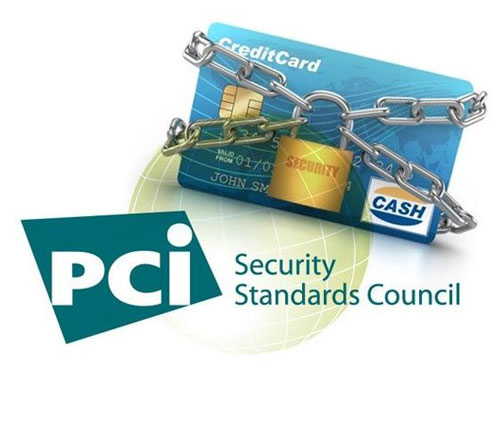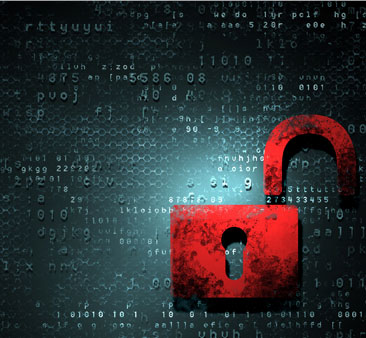NETWORK SECURITY
Kangas Cloud Security Services
Kangas Cloud employs CompTIA Security+ certified network technicians to provide the best network hardening and security services following network security standards to provide PCI and HIPPA compliance to safeguard personal information as well as hardening network infrastructure. Check out just a few of the technologies employed by Kangas Cloud’s technicians below.

Managed Firewall
Kangas Cloud utilizes a Managed Firewall system to monitor and control incoming and outgoing network traffic to secure your systems against intruders and block unwanted network traffic.
Virtual Private Networking (VPN)
Kangas Cloud’s network design includes solutions for VPN, as well as a method of extending your private network to external workstations. VPNs help enforce your internal security policies to workstations that are off premises and enable your users to send and receive data across shared or public networks as if their computing devices were directly connected to the private network thus benefiting from the functionality, security and management policies of the private network.
Private Layer 3 Encrypted Networks (Replaces MPLS)
Encryption is essential to secure data transferred on public networks, ensuring that anyone monitoring network traffic cannot read the data being passed along the public network to get access to sensitive information.
Content Inspection
Content Inspection ensures that intruders are not sending packets of fake information to try to gain insight into how your network is designed that could help them in intrusion to your system.
Intrusion Detection
Kangas Cloud’s system architecture detects attempted intrusion attempts and blocks would be intruders from accessing your network and data, as well as informing you automatically of the intrusion detection.
Access Control
Proper Access Control ensures that only those who should have access to your data are able to access it. Employing white lists and black lists, your network can be secured to block known bad actors and provide access to trusted systems. Active directory and security roles and permission can lock down internal folders and files to only provide your employees with access to relevant data and functionality.
CompTIA Security+ Certified technicians
provide PCI and HIPPA complaince
PCI and HIPPA compliance standards are not interchangeable. HIPPA requirements are mandated by Federal Law for healthcare providers and any business that handles sensitive medical and health data. On the other hand, PCI compliance is not a law, but a set of security standards enacted by major credit card brands to safeguard client card and personal data.
Kangas Cloud’s network technicians are CompTIA Security+ certified to provide security services that will harden your system and ensure 100% compliance with PCI and HIPPA requirements. To learn more about these security standards and CompTIA Security+ certification, see the information below.
What is PCI Compliance

The Payment Card Industry Data Security Standard (PCI DSS) is a set of requirements designed to ensure thatALL companies that process, store or transmit credit card information maintain a secure environment. Essentially any merchant that has a Merchant ID (MID).
The Payment Card Industry Security Standards Council (PCI SSC) was launched on September 7, 2006 to manage the ongoing evolution of the Payment Card Industry (PCI) security standards with focus on improving payment account security throughout the transaction process. The PCI DSS is administered and managed by the PCI SSC (www.pcisecuritystandards.org), an independent body that was created by the major payment card brands (Visa, MasterCard, American Express, Discover and JCB.).
It is important to note, the payment brands and acquirers are responsible for enforcing compliance, not the PCI council.
PCI applies to ANY organization or merchant, regardless of size or number of transactions, that accepts, transmits or stores any cardholder data. Said another way, if any customer of that organization ever pays the merchant directly using a credit card or debit card, then the PCI DSS requirements apply.
Businesses that are found to be out of compliance with PCI may be subject to fines by the entity they use to process their credit card transactions. Businesses that have a data breach where credit card data is actually stolen will be subject to much larger fines and fees from the banks, card brands, etc., and are required to report the breach, which quickly makes the news and causes further reputation damage.
PCI is not, in itself, a law. The standard was created by the major card brands Visa, MasterCard, Discover, AMEX and JCB. At their acquirers’/service providers’ discretion, merchants that do not comply with PCI DSS may be subject to fines, card replacement costs, costly forensic audits, brand damage, etc., should a breach event occur.
For a little upfront effort and cost to comply with PCI, you greatly help reduce your risk from facing these extremely unpleasant and costly consequences.
You can find more information on PCI compliance here
What is HIPPA Compliance
The Health Insurance Portability and Accountability Act of 1996 (HIPAA) required the Secretary of the U.S. Department of Health and Human Services (HHS) to develop regulations protecting the privacy and security of certain health information.1 To fulfill this requirement, HHS published what are commonly known as the HIPAA Privacy Rule and the HIPAA Security Rule The Privacy Rule, orStandards for Privacy of Individually Identifiable Health Information, establishes national standards for the protection of certain health information. The Security Standards for the Protection of Electronic Protected Health Information (the Security Rule) establish a national set of security standards for protecting certain health information that is held or transferred in electronic form. The Security Rule operationalizes the protections contained in the Privacy Rule by addressing the technical and non-technical safeguards that organizations called “covered entities” must put in place to secure individuals’ “electronic protected health information” (e-PHI).
A major goal of the Security Rule is to protect the privacy of individuals’ health information while allowing covered entities to adopt new technologies to improve the quality and efficiency of patient care. Given that the health care marketplace is diverse, the Security Rule is designed to be flexible and scalable so a covered entity can implement policies, procedures, and technologies that are appropriate for the entity’s particular size, organizational structure, and risks to consumers’ e-PHI.
Find more information about HIPPA compliance here
CompTIA Security
CompTIA Security+ is the certification globally trusted to validate foundational, vendor-neutral IT security knowledge and skills. As a benchmark for best practices in IT security, this certification covers the essential principles for network security and risk management making it an important stepping stone of an IT security career.

Security+ is government approved
CompTIA Security+ is approved by the U.S. Department of Defense to meet 8570.01-M and 8140 technical and management directives, and is compliant with government regulations under the Federal Information Security Management Act (FISMA).
Security+ is globally recognized
CompTIA Security+ is a globally recognized credential with certified professionals working in over 147 countries throughout the world.
Security+ provides substantial earnings potential
According to the Bureau of Labor Statistics, Security Specialists, Administrators and Managers earn over $86,000 per year.
Security+ is industry supported
Security+ is developed and maintained by leading IT experts. Content for the exams stems from a combination of industry-wide survey feedback and contributions from our team of subject matter experts. Learn more about the people behind the CompTIA Security+ Advisory Committee
CompTIA Security+ is the certification globally trusted to validate foundational, vendor-neutral IT security knowledge and skills. As a benchmark for best practices in IT security, this certification covers the essential principles for network security and risk management – making it an important stepping stone of an IT security career.
Security+ is government approved
CompTIA Security+ is approved by the U.S. Department of Defense to meet 8570.01-M and 8140 technical and management directives, and is compliant with government regulations under the Federal Information Security Management Act (FISMA).
Security+ is globally recognized
CompTIA Security+ is a globally recognized credential with certified professionals working in over 147 countries throughout the world.
Security+ provides substantial earnings potential
According to the Bureau of Labor Statistics, Security Specialists, Administrators and Managers earn over $86,000 per year.
Security+ is industry supported
Security+ is developed and maintained by leading IT experts. Content for the exams stems from a combination of industry-wide survey feedback and contributions from our team of subject matter experts. Learn more about the people behind the CompTIA Security+ Advisory Committee.





